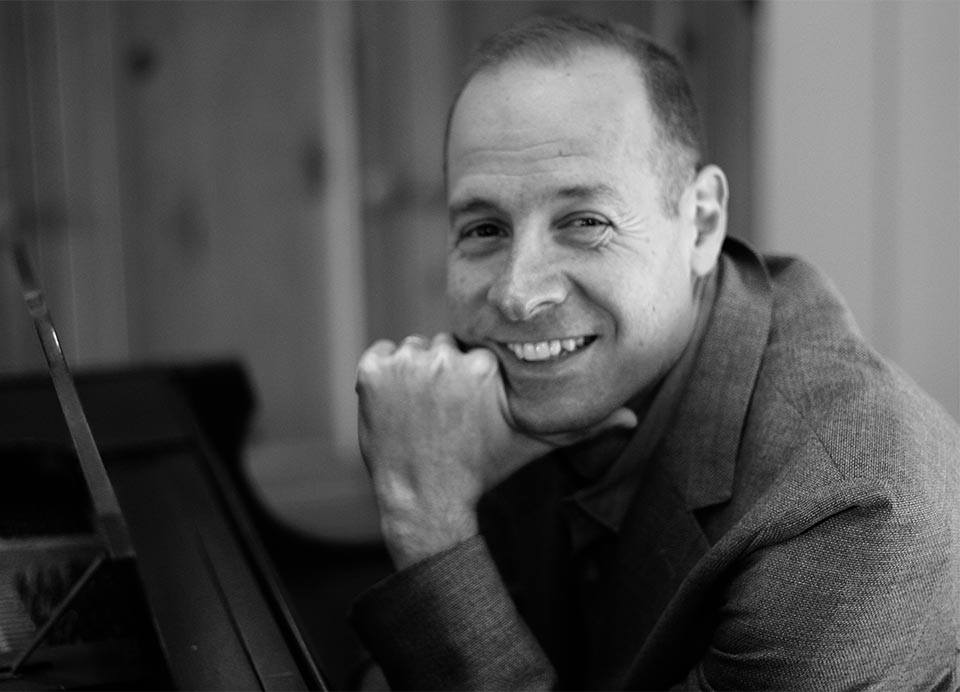AboutAs a young person, Andrew Lewinter divided his attention between composition and the French horn, studying composition at Juilliard in the pre-college division, and horn with William VerMeulen, Dale Clevenger, and David Jolley. He attended Northwestern University School of Music, but left after his sophomore year to pursue a career as an orchestral horn player, playing with the Florida Orchestra in Tampa, Florida (1986-88) and Principal Horn with both the Florida Philharmonic (1988-2001) and the Santa Fe Opera (1994-97). He won the top prize at the Prague Spring International Solo Competition in 1992.
|
In 2016, Andrew began again to compose music. His works include:
- Sonata for Horn and Piano (2017) (premiered by Lydia VanDreel and Sandy Holder in Tacoma, Washington in 2018 and recorded by James Wilson and Catherine Ciscon in 2019 )
- Nonet (2018) (premiered at the Palm Beach Chamber Music Festival in 2018 and recorded by members of the Brno Philharmonic on Ablaze Records)
- Sonata for Tuba (or Bass Trombone) and Piano (2018) (written for and premiered by Michael Grose and Andrew Pham at the University of Oregon in 2019). (Subsequently Orchestrated as Concerto for Tuba or Bass Trombone and Piano)
- Waltz for Flute and Cello (2019) (included on flutist Dieter Flury’s solo album, “Modern Works for Flute” on Navona Records)
- String Quartet (2019)
- Woodwind Quintet (2019) (recording by the New London Chamber Ensemble to be released on Navona Records in 2022)
- Because I Could not Stop for Death (2020) (to be recorded by mezzo soprano Megan Ihnen, and released on Navona Records in 2022)
- Trio for Oboe, Horn, and Piano (2020) (recorded by John Dee, oboe, Bernhard David Scully (horn), and Casey Robards (piano) at the University of Illinois in 2021
- Quartet for Trumpet, Horn, Trombone and Piano (2020)
- Quintet for Oboe and Strings (2021) (Written for oboist John Dee)
- Four Miniatures for Horn and Violin (2021) (Written for hornist David Jolley)
- Sonata for Low Brass and Piano (2022) (playable on trombone, bass trombone, or euphonium)
In 2016, I decided to start composing music. I wrote music as a kid but stopped after high school. Since I played the horn professionally for a lot of my life, the first goal I set for myself was to write a sonata for horn and piano. As a first project, I decided to extensively review theory, form, and counterpoint, using many books, scores, and a lifetime of playing and listening to classical music as my guides. My piece would use common practice harmony and standard classical forms, such as sonata-allegro form.
The Sonata for Horn and Piano that I composed was beautifully premiered by my friends Lydia Van Dreel and Sandy Holder at a Northwest Horn workshop in 2018, and later recorded by friends and great musicians, James Wilson and Katherine Ciscon. That terrific recording by James Wilson and Katherine Ciscon is now available on Navona records. The CD can be purchased commercially through Amazon, and streamed on all major streaming services, such as Spotify, Apple Music, YouTube and Idagio.
I am really fortunate that such great musicians recorded the piece that I wrote. Thank you also to Christian Schubert, who engineered the recording, as well as Bob Walp, who produced it.
After writing the Horn Sonata, I continued composing, and stuck with tonal harmony and standard classical forms, although my compositional style continues to develop. Tonal harmony is a musical language that allows me to express the widest range of emotions and western classical music’s traditional structures provide guide rails within which I can be creative.
At this point, I‘ve written more than a dozen multi-movement pieces of chamber music, and am forging ahead almost every day.
–Andrew Lewinter
The Sonata for Horn and Piano that I composed was beautifully premiered by my friends Lydia Van Dreel and Sandy Holder at a Northwest Horn workshop in 2018, and later recorded by friends and great musicians, James Wilson and Katherine Ciscon. That terrific recording by James Wilson and Katherine Ciscon is now available on Navona records. The CD can be purchased commercially through Amazon, and streamed on all major streaming services, such as Spotify, Apple Music, YouTube and Idagio.
I am really fortunate that such great musicians recorded the piece that I wrote. Thank you also to Christian Schubert, who engineered the recording, as well as Bob Walp, who produced it.
After writing the Horn Sonata, I continued composing, and stuck with tonal harmony and standard classical forms, although my compositional style continues to develop. Tonal harmony is a musical language that allows me to express the widest range of emotions and western classical music’s traditional structures provide guide rails within which I can be creative.
At this point, I‘ve written more than a dozen multi-movement pieces of chamber music, and am forging ahead almost every day.
–Andrew Lewinter
